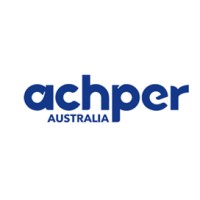Courtesy of The Australian Council for Health, Physical Education and Recreation (ACHPER)
What is this?
This instrument for capturing school health education data, led by Natalie McMaster, one of our Committee members, in her former role as an ACHPER National Board Director was designed and developed by a team of teachers, academics and health professionals then finalised through consultation with the ACHPER branches. The principles provide a framework of key themes and principles to support effective health education in schools. The principles are underpinned by current research and were mapped to a variety of health education documents and frameworks such as; World Health Organization Health Promoting Schools Framework, Student Wellbeing Hub, 12 Principles for Drug Education, Australian Curriculum: HPE propositions, Friendly Schools Initiative, 12 Principles of Best Practice in relationships and sexual health education (Shine SA) and the 12 Principles of sexuality and sexual health in NSW government schools.
Why?
It was created to assist schools, teachers and external services to identify the elements required for quality health education and analyse how current education programs or resources perform across three themes and seven principles. ACHPER’s former Active and Healthy Schools Committee, identified that in Australia there was an absence of national health principles to support health education in schools. Consequently research was initiated in this area leading to writing and consultation processes over several years leading to the final audit tool being created.
How?
The audit tool provides a list of questions associated with each of seven principles, so that schools, teachers and external services can question their practices – examining the original World Health Organisation health promoting schools framework of school environment and ethos; curriculum, teaching and learning; and partnerships and services. The answers provided in the audit can help educators to evaluate and improve the health education provided in the school by spotting gaps and initiating corrective actions.
Individual schools will soon be able to access this tool on the ACHPER website through a ‘landing page’ coming soon on the ACHPER National website. Look out for more information soon!
